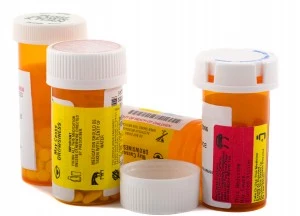nj1015.com: Keeping national tabs on your prescriptions
9/10/2015
Not every state has a Prescription Monitoring Program like New Jersey’s that doctors, pharmacists or a qualified health care worker must check before doling out medications. Right now it wouldn’t matter if all 50 states had such database because they are not interoperable from state to state.

A member of the Garden State’s congressional delegation said he hoped to change that by giving more states federal money with the ultimate goal of creating a national system.
“We find a lot of people who actually go back and forth to different doctors and different pharmacies in the tri-state area. These systems are not interoperable from one state to the next. That’s a problem for some states particularly a state like ours where people can easily go to New York or to Philadelphia across the border into our neighboring states,” said Rep. Frank Pallone (D-NJ).
Wednesday night, Congress passed the National All Schedules Prescription Electronic Reporting Act which was co-authored by Pallone. It provides grant funding to states for PMPs in an effort to fight the growing prescription drug abuse epidemic by helping prescribers, pharmacists and law enforcement officials track the misuse of prescription drugs.
“The idea definitely is to be able to check people out nationally,” Pallone said.
In July, Gov. Chris Christie signed a bill (S-1998) into law requiring that prescribers and pharmacists register for NJPMP access, and requiring that doctors consult the database the first time they prescribe a drug classified as a Schedule II CDS, or controlled dangerous substance, such as oxycodone, to a patient and then check it at least quarterly after for patients that continue to get these medications.
The new Garden State law was co-sponsored by State Sen. Joe Vitale (D-Woodbridge). He said he consulted Pallone as the federal legislation was written. Vitale said he supports tying together the databases nationally if it were to mirror New Jersey’s requirements.
“Checking the database has to be mandatory,” Vitale insisted. “We’re not asking a lot. We’re asking you to try to save someone’s life. To help them with an addiction if they have it.”
Kevin McArdle has covered the State House for New Jersey 101.5 news since 2002. Contact him at kevin.mcardle@townsquaremedia.com. Follow him on Twitter at @kevinmcardle1